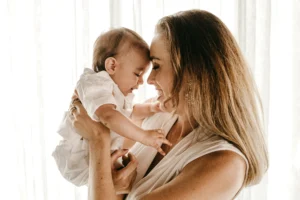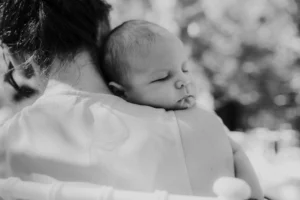Reflections from Rocky Mountain Sleeping Baby on the cultural meaning of sleep, connection, and what works for your family
A recent New York Times article, “Why So Many Parents in Asia Sleep Beside Their Kids,” offered a fascinating look at how families across Asia approach nighttime routines and how different those habits can be from those in the U.S. While many Western households aim for early independence in baby sleep, co-sleeping and bed-sharing are deeply rooted cultural norms throughout much of Asia, often continuing well into early childhood.
At Rocky Mountain Sleeping Baby, this got us thinking: what can we learn from these practices? And more importantly, how can we use this knowledge to support families here, wherever they fall on the sleep spectrum?
Co-Sleeping Isn’t Just About Sleep: It’s About Culture, Connection, and Comfort
Across countries like Japan, South Korea, and India, co-sleeping isn’t controversial, it’s simply the way things are done. In many cases, families sleep in the same bed or room long after infancy, viewing it as a way to foster emotional closeness, safety, and bonding.
And despite the prevalence of bed-sharing, these families often report fewer sleep “issues” or disruptions than Western households do. Why? Because expectations are different. Independent sleep isn’t seen as a milestone to rush toward and sleep itself is viewed as a shared, relational experience.
So What Does the Science Say?
From a pediatric sleep perspective, we always prioritize safe sleep practices above all. The American Academy of Pediatrics recommends room-sharing without bed-sharing for the first 6–12 months of life, as it lowers the risk of SIDS. But sleep safety isn’t one-size-fits-all. In many Asian cultures, safer bed-sharing practices have evolved naturally, such as using firm sleep surfaces, minimal bedding, and clear sleep zones.
What’s clear is this: the emotional needs of babies are universal. Whether your baby is in a crib, bassinet, or family bed, closeness, predictability, and responsiveness are what support healthy development and restful nights.
Our Approach at Rocky Mountain Sleeping Baby
We know every family is different and so are their sleep goals. That’s why Rocky Mountain Sleeping Baby offers flexible, compassionate guidance rooted in current research and tailored to your family’s values. Whether you’re considering room-sharing, co-sleeping, or helping your little one transition to independent sleep, we’re here to help you do it safely, gently, and confidently.
Our baby sleep philosophy includes:
- Safety First – Always follow safe sleep guidelines for infants, especially under 12 months old.
- Connection Counts – Sleep isn’t just about schedules; it’s about nurturing secure attachment.
- Respecting Readiness – We never push independence before a child is developmentally ready.
We never use cry-it-out methods. Instead, we help parents build sustainable routines that support both better sleep and stronger bonds.
Sleep Is Deeply Personal And You Know What’s Best
As the New York Times piece reminded us, baby sleep is as much about culture and connection as it is about naps and nighttime routines. Whether your baby sleeps in a crib across the room or right beside you, what matters most is that your approach feels right and that everyone is getting the rest they need.
At Rocky Mountain Sleeping Baby, we believe that families deserve support, not judgment. Our job is to walk with you through the sleep journey, no matter your sleep style because peaceful nights come in many forms.
Rocky Mountain Sleeping Baby is here for you, no matter where you are in your sleep journey.





